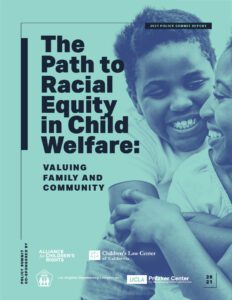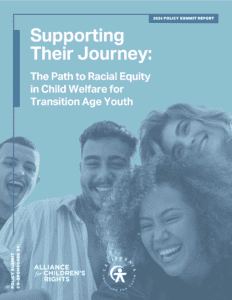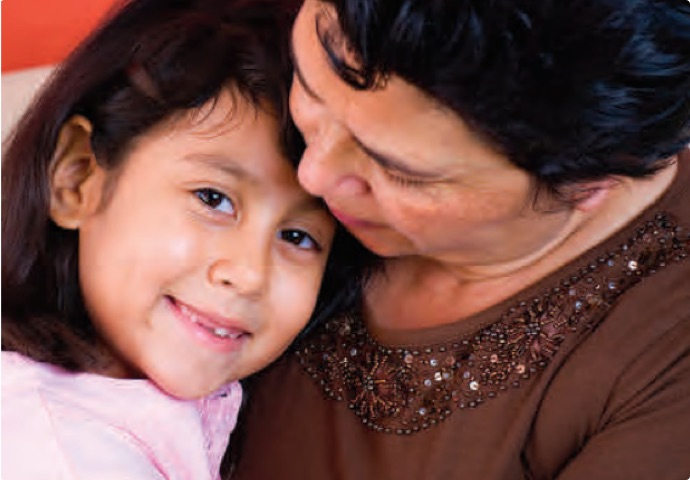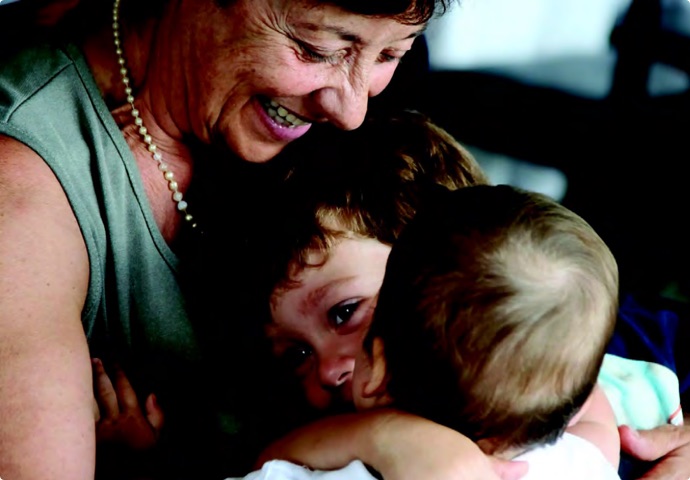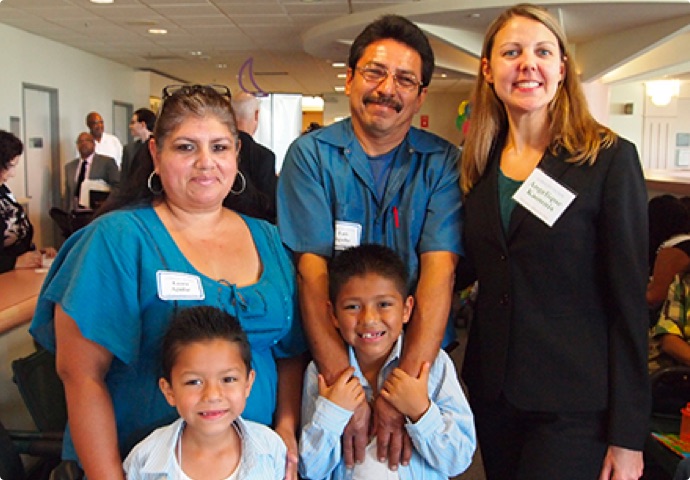The Path to Racial Equity in Child Welfare
Whole Families /
Whole Communities
During the summer of 2020, amidst the nationwide uprising against police brutality and systemic racism, the Alliance for Children’s Rights launched an initiative focused on addressing the racial inequities in child welfare.
In the time since, the Alliance has collaborated with advocates, court officers, child welfare agency staff members, service providers, and people directly impacted by the system to develop and refine recommendations for building an equitable, just, and family-centered system.
“I would have experienced confusion around my racial identity had I not been able to stay with my family and have that connection.”
DEMONTEA THOMPSON
Executive Director, Twinspire
The objectives of our recommendations:
- Value family and community through prevention strategies aimed at avoiding maltreatment from occurring and halting all unnecessary separations of children and parents.
- Address the power imbalance between families and the child welfare system.
- Empower the family network and connect youth to their community if and when removing a child from their home is necessary and appropriate.
- Prioritize family- and community-centered pathways to reunification.
Our Advocacy Campaign
Whole Families/Whole Communities is an advocacy campaign dedicated to transforming these recommendations—this blueprint for reform—into reality across the state of California. None of this work would be possible without the activism and advocacy of Black, Native American, and Latino communities that have been and continue to be disproportionately harmed in the child welfare system.
The Whole Families/Whole Communities campaign will aim to create opportunities for those most impacted by the system to drive policy reform and ensure mutual accountability among system stakeholders and partners. Together, the Alliance and its partners envision a future where all families have equitable access to services and supports regardless of their socioeconomic background, race, or ethnicity. As a result, no child will be at greater risk of entering or aging out of foster care based on these characteristics.
The Path to Racial Equity in Child Welfare: Valuing Family and Community The Alliance for Children’s Rights, joined by the Children’s Law Center of California, Los Angeles Dependency Lawyers, and UCLA Pritzker Center for Strengthening Children and Families, hosted a virtual policy summit bringing together a diverse group of practitioners, advocates, and people with lived experience to consider racial inequities in the child welfare system.
The policy summit focused on a draft report including a set of policy recommendations to support and empower the children, families, and communities served by the system. Summit attendees participated in facilitated breakout sessions to provide feedback on the draft policy recommendations.
Supporting Their Journey: The Path to Racial Equity in Child Welfare for Transition Age Youth
This report is intended to continue the conversations and recommendations to address racial disparities and disproportionalities in the child welfare system. It builds on our initial report focused on entry into the system to examine the racial disparities and inequities transition age youth, those aged 16-24, experience while in and exiting the foster care system and the ways in which those inequities are driven by systemic factors, such as implicit bias, socioeconomic inequality, and inadequate access to culturally responsive services, and makes recommendations for policy and practice changes to ameliorate those disparities. These targeted policy and practice reforms aim to combat the impacts of systemic disparities and disproportionalities and foster stability and expand economic and educational opportunities to improve the health and well-being of transition age youth.
“During the time of my open case, I remember battling with the foster agency to make sure my son was placed with a family that represented what I look like. Because my son was so young, I wanted to make sure that he had representation of his Mommy. At the time, I wasn't able to provide for him in the way he needed, but I needed my son to have a roadmap to my community, to the essentials of my being.
The system is not friendly to parents. It is not designed to get children back to parents of color. I have been clean now for three years. And my son is now thriving.”— Ericka Glenn, Parent and Advocate
Join the Coalition.
If your organization is interested in joining the Whole Families/Whole Communities coalition, we would like to hear from you! Please connect via the form below.
Foster to Family
Meet Mary
It is critical that we value family and community in order to reimagine the child welfare system.
The time for transformational change is now.


